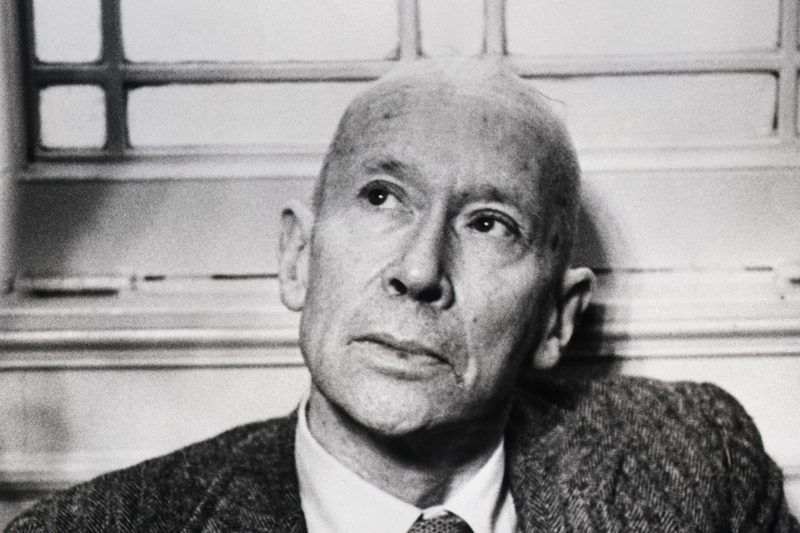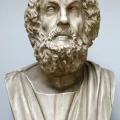
In the realm of poetry, free verse emerges as a liberating form, unshackled by the traditional constraints of rhyme and metre. It is a poetic style that thrives on the freedom of expression, allowing poets to paint their thoughts and emotions on the canvas of language without the need to adhere to a set pattern.
One of the most significant elements in this poetic form is syntax – the arrangement of words and phrases to create well-formed sentences.
Contents
What Is Syntax?
Syntax refers to the set of rules, principles, and processes that govern the structure of sentences in a given language. It involves the arrangement of words and phrases to create well-formed sentences. Syntax dictates how words from different parts of speech (such as nouns, verbs, adjectives, and adverbs) are put together in order to convey a complete thought.
In the context of language, syntax can involve anything from word order and punctuation to agreement (e.g., plural vs. singular) and tense (e.g., past, present, future). Syntax helps ensure that the meaning of a sentence is clear and that the sentence is grammatically correct.
In the context of poetry and literature, syntax can also refer to the way in which words and sentences are structured to create a particular effect. For example, a poet might use unusual syntax (such as inverted word order or unusual punctuation) to create a particular rhythm, to emphasise a certain word or phrase, or to convey a particular mood or tone.
In free verse, syntax is not just a tool for constructing sentences; it is a creative device that can be manipulated to create rhythm, convey meaning, and evoke emotions. This article delves into the intricate role of syntax in free verse, exploring how it shapes the essence of this unique poetic form.
The Freedom of Free Verse
Free verse is like a bird in flight, soaring in the vast expanse of the poetic sky with no chains of traditional forms holding it back. It offers poets a broad canvas to experiment with language, to bend and twist it in ways that would not be possible within the confines of traditional poetic forms.
Breaking the Chains of Convention
In free verse, syntax is liberated from the usual grammatical rules. Poets can play with sentence structure, word order, and punctuation to create unique poetic expressions. This freedom allows for a more natural and spontaneous flow of language, mirroring the rhythms of speech and thought. It enables poets to capture the complexities and nuances of human emotions and experiences in a way that is authentic and relatable.
The Role of Syntax in Free Verse
Syntax in free verse is like the conductor of an orchestra, guiding and shaping the flow of words to create a harmonious symphony of language. It is a powerful tool that poets can use to create a variety of effects and to convey their intended meaning.
Creating Rhythm and Flow
In free verse, poets can use syntax to create rhythm and flow. They can manipulate sentence length and structure to create a sense of movement and pace. Short, fragmented sentences can create a sense of urgency or tension, while longer, more complex sentences can create a sense of flow and continuity.
Conveying Meaning
Syntax can also be used to convey meaning in free verse. By breaking away from conventional sentence structures, poets can create new meanings and associations. This allows for a more nuanced and complex exploration of themes and emotions. For example, a poet might use an unusual word order to highlight a particular word or phrase, or to create a sense of disorientation or confusion.
The Importance of Line Breaks
In free verse, line breaks are not just a way to separate sentences or phrases; they are a crucial aspect of syntax that can significantly influence the rhythm and meaning of the poem.
Creating Emphasis and Pause
Line breaks can be used to create emphasis, suggesting a pause or a moment of reflection. They can also be used to highlight a particular word or phrase, drawing the reader’s attention to it. The placement of line breaks can significantly impact the way a poem is read and interpreted, adding another layer of meaning to the words.
Influencing Pace and Rhythm
Line breaks can also influence the pace and rhythm of the poem. By varying the length of lines, poets can create a sense of movement and rhythm. Short lines can create a fast, choppy rhythm, while longer lines can create a slower, more flowing rhythm.
The Use of Punctuation
In free verse, punctuation is not just a tool for clarifying sentence structure; it is a part of syntax that can be used to control the rhythm and pace of the poem, to create emphasis, and to suggest a particular tone or mood.
Controlling Rhythm and Pace
Punctuation marks such as commas,periods, and semicolons can be used to create pauses in the poem, controlling the rhythm and pace. A comma might suggest a short pause, while a period might suggest a longer pause or a full stop. This can influence the way the poem is read, adding to the rhythm and flow of the language.
Creating Emphasis and Suggesting Tone
Punctuation can also be used to create emphasis or to suggest a particular tone or mood. For example, an exclamation mark might be used to convey surprise or excitement, while a question mark might suggest uncertainty or confusion. The absence of punctuation, on the other hand, can create a sense of fluidity or ambiguity, leaving more room for interpretation.
The Power of Repetition
In free verse, repetition is not just a stylistic device; it is a part of syntax that can be used to create rhythm, to build intensity, and to emphasise a particular word or phrase.
Creating Rhythm and Cohesion
Repetition can create a sense of rhythm and cohesion in a poem. By repeating certain words or phrases, poets can create a rhythmic pattern that adds to the musicality of the language. This can make the poem more memorable and engaging, drawing the reader into the rhythm of the words.
Building Intensity and Emphasis
Repetition can also be used to build intensity and to emphasise a particular word or phrase. By repeating a word or phrase, poets can draw attention to it, highlighting its significance. This can be used to build tension, to create a sense of urgency, or to emphasise a particular theme or emotion.
The Impact of Syntax on Meaning
In free verse, syntax is not just a tool for constructing sentences; it is a creative device that can significantly impact the meaning of the poem. By manipulating syntax, poets can create new meanings, adding depth and complexity to their poetic expressions.
Breaking Conventional Structures
By breaking away from conventional grammatical structures, poets can create new meanings and associations. This allows for a more nuanced and complex exploration of themes and emotions. For example, a poet might use an unusual word order to highlight a particular word or phrase, or to create a sense of disorientation or confusion.
Creating Ambiguity and Multiple Interpretations
The manipulation of syntax can also create ambiguity, allowing for multiple interpretations. This can add a layer of complexity to the poem, inviting the reader to engage more deeply with the text and to bring their own interpretations and experiences to it.
The Influence of Free Verse on Contemporary Poetry
Free verse has had a significant influence on contemporary poetry. It has opened up new possibilities for poetic expression and has challenged traditional notions of what poetry can be. Many contemporary poets use free verse to explore a wide range of themes and styles, often experimenting with syntax to create unique and innovative poetic expressions.
Breaking Boundaries and Pushing the Limits
Free verse has allowed poets to break boundaries and push the limits of what is possible in poetry. By freeing poetry from the constraints of traditional forms, it has opened up a world of possibilities for creativity and innovation. This has led to a rich diversity of styles and themes in contemporary poetry, with poets using free verse to explore everything from personal experiences and emotions to social issues and philosophical ideas.
Syntax in free verse is a powerful tool that allows poets to freely express their thoughts and emotions. By breaking away from the constraints of traditional poetic forms, poets can experiment with language to create unique and impactful poetic expressions. Whether it’s through the use of line breaks, punctuation, repetition, or unconventional grammatical structures, the manipulation of syntax in free verse offers endless possibilities for creativity and innovation in poetry.
As we delve into the world of free verse, we discover a poetic form that is as diverse and complex as the human experience itself, a form that continues to evolve and inspire, pushing the boundaries of what is possible in the realm of poetic expression.
The Power of Syntax in Free Verse
The power of syntax in free verse lies in its ability to shape and mould the language to the poet’s will. It is a tool that can be used to create rhythm, to convey meaning, and to evoke emotions. It can be manipulated to create a variety of effects, from the subtle to the dramatic. In the hands of a skilled poet, syntax can transform words into a symphony of sound and meaning, creating a poetic landscape that is as rich and varied as the human experience.
Syntax as a Creative Device
In free verse, syntax is not just a tool for constructing sentences; it is a creative device that can be used to craft unique and impactful poetic expressions. By manipulating syntax, poets can create new meanings, add depth and complexity to their work, and evoke a wide range of emotions. This creative use of syntax is one of the defining features of free verse, setting it apart from traditional poetic forms.
The Future of Free Verse
As we look to the future, it is clear that free verse will continue to play a significant role in the world of poetry. Its flexibility and freedom allow for endless possibilities for creativity and innovation, making it a fertile ground for the exploration of new themes and styles. As poets continue to experiment with syntax and push the boundaries of what is possible in free verse, we can expect to see a continued evolution of this unique and dynamic form of poetry.
In conclusion, the role of syntax in free verse is a testament to the power of language and the creative potential of poetry. It is a reminder that poetry is not just about adhering to rules and conventions, but about pushing boundaries, breaking rules, and finding new ways to express the complexities of the human experience. As we delve deeper into the world of free verse, we discover a poetic form that is as diverse and complex as the human experience itself, a form that continues to inspire and captivate, challenging us to see the world through a different lens.
- Glossary of Japanese Poetry Terms - 26 February 2025
- What is Waka Poetry? - 23 May 2024
- How to Identify the Kigo in a Haiku: - 22 March 2024





